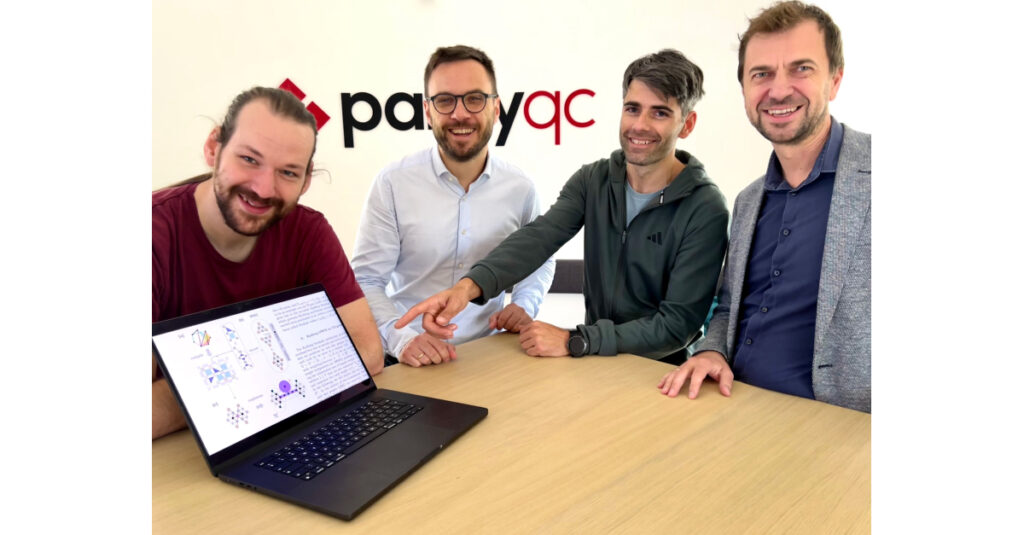Innsbruck, 08.10.2024 –The teams at ParityQC and the University of Innsbruck have made a significant step forward in simplifying the control of quantum computers. This advancement, detailed in the recently published paper titled “Quantum Optimization with Globally Driven Neutral Atom Arrays,” represents a scalable encoding for solving complex combinatorial optimization problems with global laser addressing.
Reducing the complexity of the control of quantum computers is one of the key challenges in atom-based quantum computing. In current schemes, precise control over individual atoms required multiple laser fields, leading to increased hardware complexity and operational challenges.
The team now demonstrates that it is possible to encode problems in a quantum computer without individual addressing, using only a single global laser detuning. Instead of relying on site-dependent laser fields to program, e.g., maximum-weight independent set (MWIS) problems, the team has developed a scheme that uses strategically placed auxiliary atoms to achieve the same effect. The auxiliary atoms simultaneously serve the dual purpose of problem-specific programming and mitigating the side effects of long-range interactions.
This innovation not only reduces the hardware requirements but also simplifies the overall quantum system, making it more scalable and practical for large-scale applications.
“Our approach provides a new toolbox for controlling quantum systems in the context of quantum optimization. By using a single detuning for all atoms, we reduce the experimental complexity which is crucial for the scalability of quantum computers.”– Martin Lanthaler, researcher at University of Innsbruck
Key points of the Discovery:
- Scalable Encoding: The method allows for the scalable encoding of combinatorial optimization problems on Rydberg atom arrays, using a global laser detuning instead of complex local laser fields.
- Quantum Optimization Potential: This technique brings quantum computing closer to achieving a useful quantum computer for real-world applications in combinatorial optimization, a field crucial for industries ranging from logistics to pharmaceuticals.
“This development is a significant step toward making quantum computing more accessible and practical for real-world applications. The ability to control a large quantum system without the need for individual detunings and requiring only one species of atom opens new possibilities for the advancement of quantum technologies.” – Univ.-Prof. Dr. Wolfgang Lechner, Co-CEO at ParityQC and professor at the University of Innsbruck
The implications of this breakthrough are vast, potentially paving the way for more efficient quantum computers capable of tackling some of the most challenging problems in fields such as optimization, materials science, and artificial intelligence.
The paper “Quantum Optimization with Globally Driven Neutral Atom Arrays” is now available for peer review on arXiv.
About ParityQC
ParityQC is the only quantum architecture company worldwide. The company’s focus is on developing blueprints and operating systems for quantum computers. ParityQC collaborates with hardware partners all over the world to jointly build highly scalable quantum computers, for applications ranging from solving optimization problems on NISQ devices to general-purpose, error-corrected quantum computing.
About the Lechner research group “Quantum Computing” at the University of Innsbruck
The research group is dedicated to theoretical quantum physics with the aim to solve computationally challenging problems efficiently in near-term quantum devices. The focus is research of coherent adiabatic and non-adiabatic processes, applications in machine learning and optimization problems as well as the investigation of implementations in different next-generation qubit platforms.



